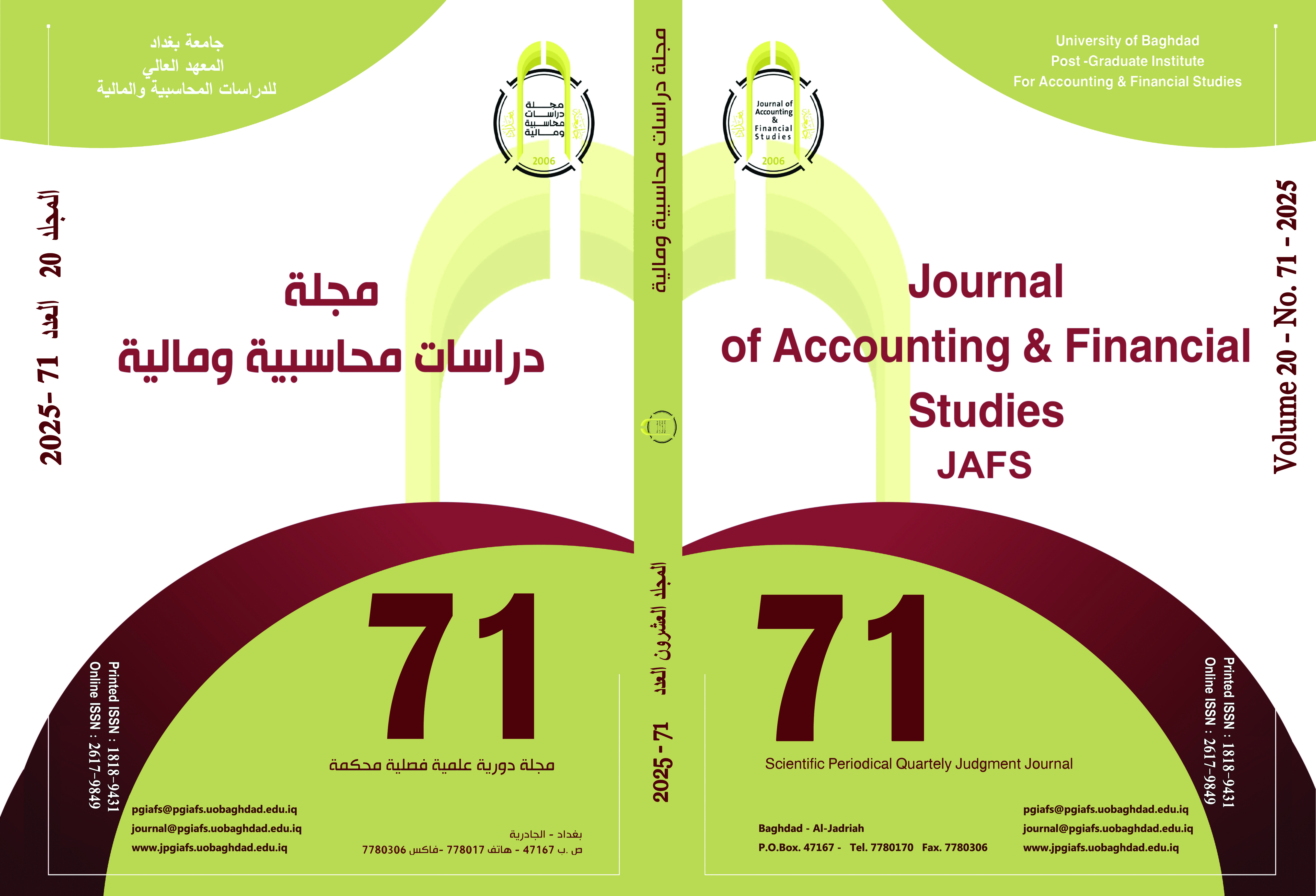Integrated reporting according to the GRI (300 & 400) standards and its impact on sustainable development
DOI:
https://doi.org/10.34093/rcrxbn64Keywords:
Integrated reporting on GRI standards (300&400), Sustainable developmentAbstract
The research aims to identify the concept of integrated reporting, present and discuss the conceptual aspects of integrated reporting in accordance with the Global Reporting Initiative (300GRI) and (400GRI) standards, and measure the level of application of disclosure of environmental and social indicators for integrated reporting in accordance with the Global Reporting Initiative (GRI) standards in the municipality. Presenting and discussing the conceptual aspects of sustainable development. The researcher reached a set of conclusions, the most important of which were: Integrated reporting is the new and future global trend for transferring information related to economic units to all stakeholders in a transparent, neutral and reliable manner. This approach contributes to eliminating bias in providing information and distributing it to a specific category rather than others, which enhances justice and equality among them. The low overall percentage of commitment to disclosure when examining and measuring the level of disclosure according to the axis of potential environmental and social indicators for the municipality of the research sample (3.13%) and (4.42%) respectively during the three years under examination, which indicates a lack of transparency in disclosure compared to the municipality's activity, which is considered an environmental pollutant, and thus this negatively affects the ability to achieve sustainable development. The researcher recommended: Developing a special standard for integrated reporting that is compatible with the economic, social and environmental conditions in Iraq, taking into account the GRI standards and benefiting from the experiences of countries whose companies have implemented the preparation of these reports. It is also necessary for the Federal Board of Supreme Audit to include the requirements for preparing annual financial statements, as well as a model for disclosing integrated reporting in accordance with the Global Reporting Initiative (GRI). This is to achieve the principle of obligation in preparing reports that include economic, social and environmental aspects, which contributes to providing a comprehensive picture of sustainability performance and highlights the positive and negative impacts of the organization.
Downloads
Published
Issue
Section
License
The copyright is transferred to the journal when the researcher is notified of the acceptance of his research submitted for publication in the journal.



